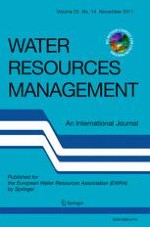01.11.2011
Optimal Reservoir Release Policy Considering Heterogeneity of Command Area by Elitist Genetic Algorithm
Erschienen in: Water Resources Management | Ausgabe 14/2011
EinloggenAktivieren Sie unsere intelligente Suche, um passende Fachinhalte oder Patente zu finden.
Wählen Sie Textabschnitte aus um mit Künstlicher Intelligenz passenden Patente zu finden. powered by
Markieren Sie Textabschnitte, um KI-gestützt weitere passende Inhalte zu finden. powered by
